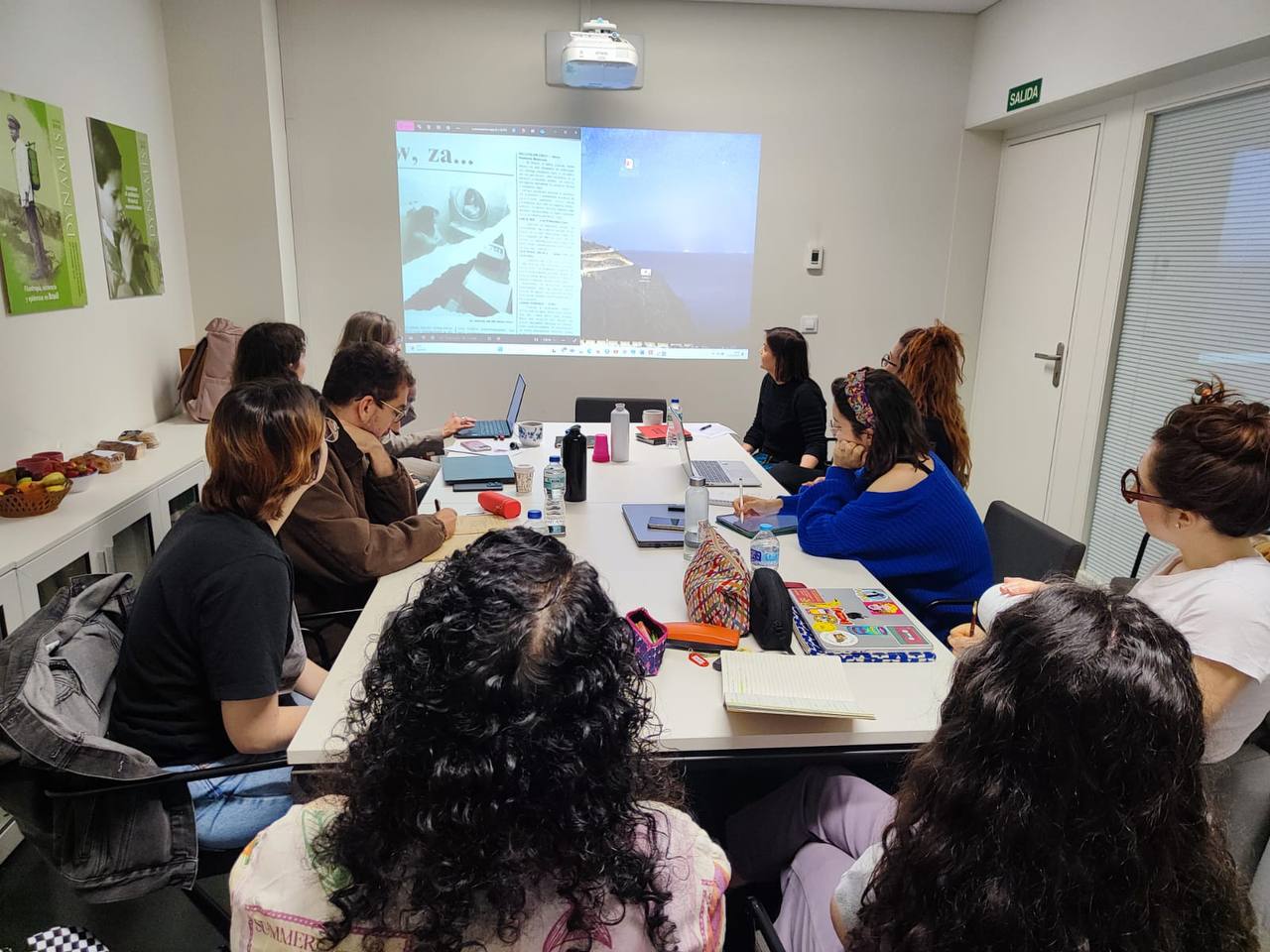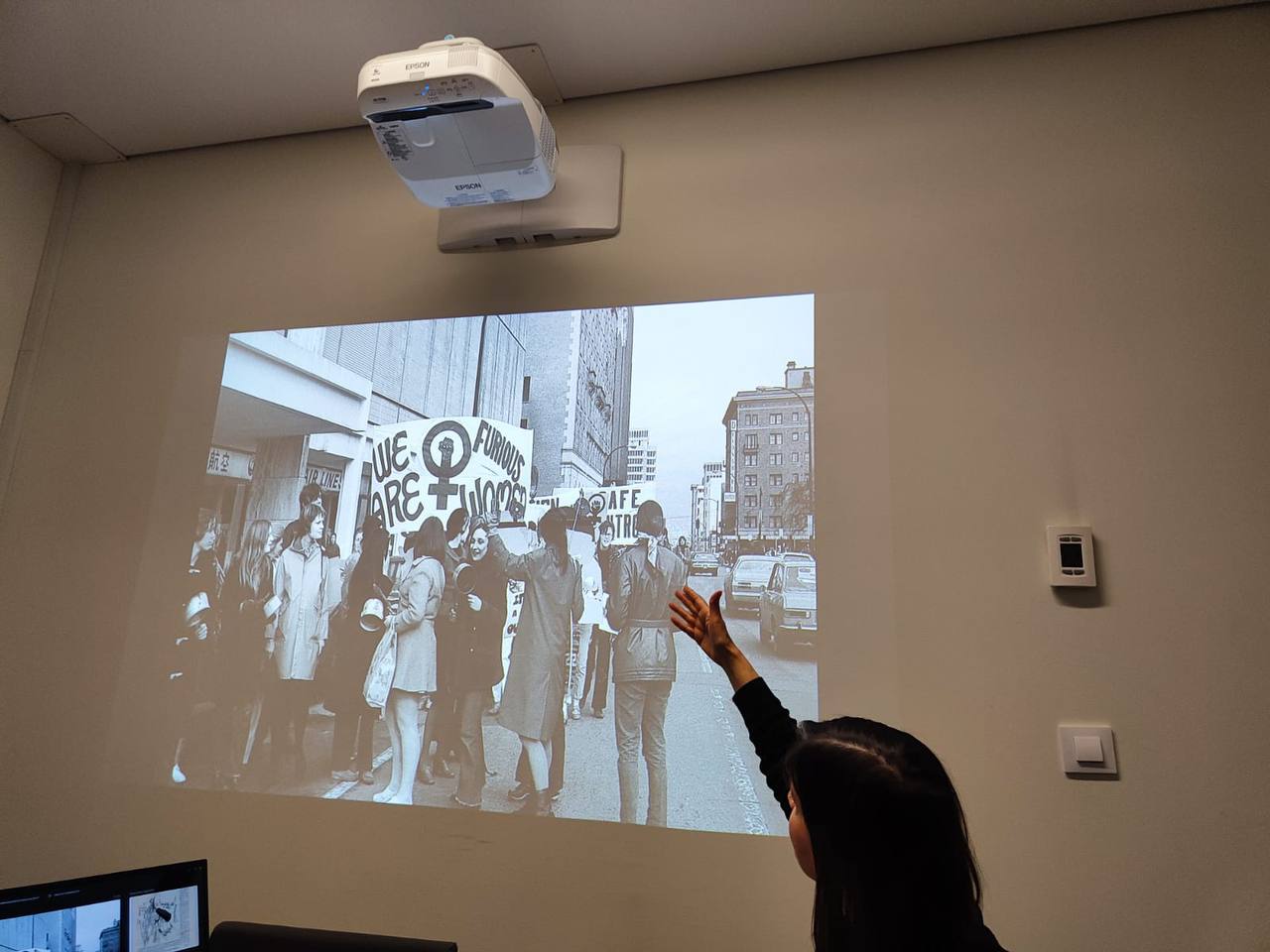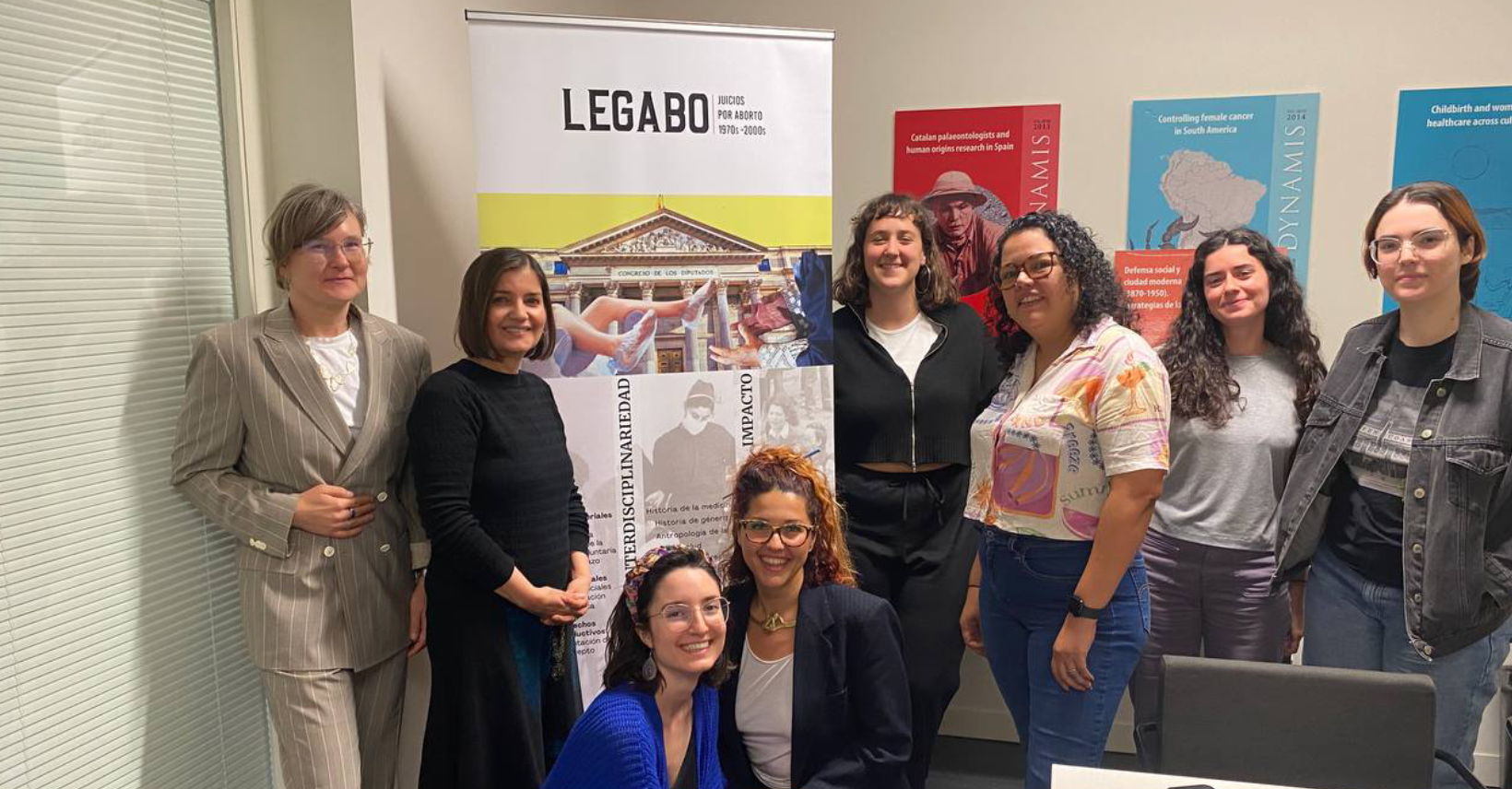What can an outsider contribute to a research workshop on abortion trials and reproductive rights? Sometimes, the answer lies in simply showing up and listening.

A week ago, I received an invitation from Professor Ignaciuk, one of the lead researchers of the unit, to attend the first workshop of her national project LEGABO: Trials for Abortion in Democratic Spain: Reproductive Rights, Material Cultures, and Legal Cultures of Abortion (1970s–2000s), in which Professor Lidia Bocanegra also participates as principal investigator.
At first, the shock of entering a building unfamiliar to me, combined with being in a completely unknown field, I won’t lie, made me feel insecure. On my way to the Health Sciences Campus, I kept asking myself what I could contribute to this workshop. A visual perspective? A methodological approach? Obviously, the answer wasn’t either of those—it was something simpler: getting to know the people.
My first impression of this workshop was that it aimed to create synergies among the participants: the researchers who make up the group of doctoral collaborators in the project and the invited researcher (and also a member of the LEGABO team), Christabelle Sethna, a historian and full professor at the Institute of Feminist and Gender Studies at the University of Ottawa, whose research focuses on sex education, contraception, and abortion.
In this academic field, one can easily fall into the trap of retreating inward and holding back in a world where connectivity and collaborative ties are far more fruitful and necessary. My first impression came from Sethna herself, who, upon entering the room, said: “Are you the person who designed the poster? I love it. I’ve printed it to put up in my office.” My work as a research assistant takes many paths beyond data analysis; that lingering part of me that studied and worked in the arts—I’m not sure how to describe it—but I received her comment like a warm embrace.
Over coffee and a variety of cookies and white chocolate palmeras, Dr. Sethna spoke to us about the evolution of the legal status of abortion in Canada as part of her current work, the journeys of Canadian women seeking abortions during the 1960s to 1980s, and what it has been like to work with archival materials. I feel that this workshop was very focused on that topic: the sources, where to find the information, how to identify the necessary data when handling documents from before the 2000s, and how to approach them to craft the scientific narrative that later appears in an academic article.

The kindness and openness that Christabelle displayed throughout the workshop fostered discussion and comments about her work, something that was particularly enriching when the PhD candidates from the Department of History of Science had the chance to present the core ideas of their dissertations. During the breaks between sessions, I got to know them better. Ágata and Lidia are surrounded by a group of women who not only radiate warmth but also prove to be outstanding scientists.
Possibly the part I enjoyed the most about the workshop was when they gave each other feedback on their respective projects—a truly healthy way to encourage collaboration and the generation of ideas, which we often overlook when we’re alone in front of our word processor. The different perspectives offered on each project also helped me. In this early stage of my own research proposal, I was able to take notes and gather ideas for a future project where I might begin to frame that looming ghost called “the doctoral thesis” that’s been haunting my mind.



